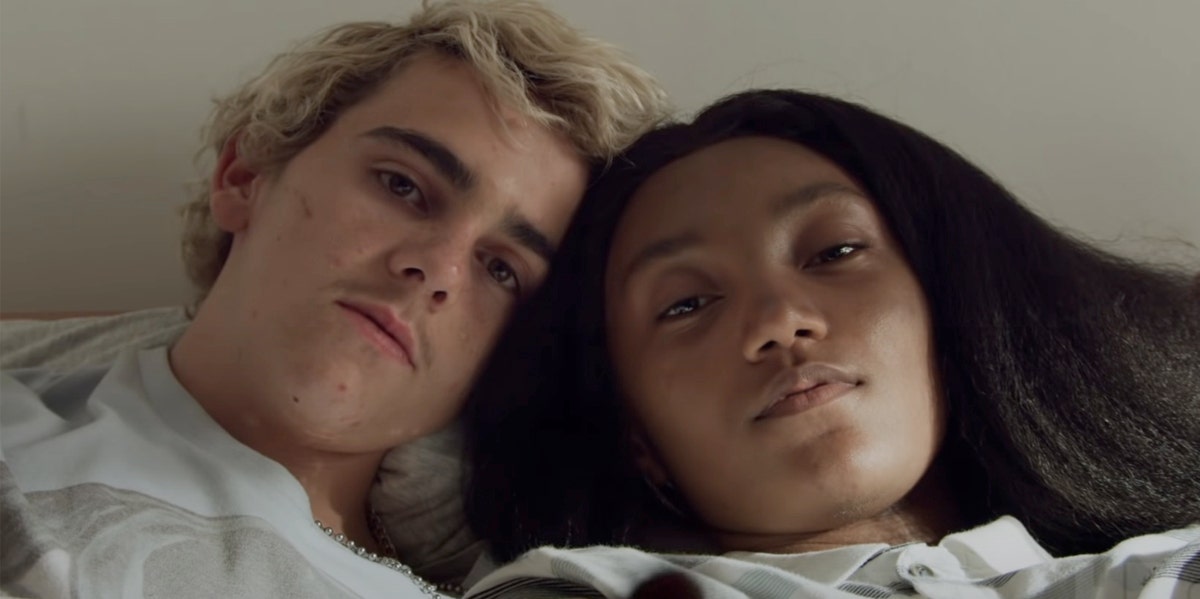How Watching Luca Guadagnino's HBO Series 'We Are Who We Are' Helped Me Understand My Own Gender Identity
It just took one character to help me have clarity in my own life.
 HBO
HBO Luca Guadagnino has done it again, creating another masterpiece that has allowed me to completely rethink and evaluate my own life.
Known for his directing in the 2017 film, ‘Call Me By Your Name,’ and now more recently, the creation of ‘We Are Who We Are,’ which is a show that follows two teenagers who live on a U.S. military base in Italy.
Throughout the show, Caitlin (Jordan Kristine Seamón), and Fraser (Jack Dylan Grazer) explore their friendships, first loves, identity, and all of the mess and exhilaration that comes with being an adolescent.
But it was one character’s journey that seemed to hit home for me and that was Caitlin.
From the beginning of the show, she had such a commanding presence, that only seemed to grow as the episodes progressed.
It isn’t that long before Caitlin was introduced to the term “transgender,” beginning that journey of her own self-discovery. She shaved her hair off, in a beautiful and emotional scene that made me pause my laptop screen and walk away. She changed her name to Harper, only using it around Fraser and strangers she’d meet outside of the army base. She wore baggy clothes, and a binder around her chest.
Watching Caitlin's character on-screen almost felt reminiscent of my own adolescent years.
I’ve always struggled with defining my own identity.
Growing up, I was surrounded by very heteronormative standards. My friends were mostly all girls, and recess was filled with them sneaking longing gazes at the boys playing basketball or gossiping about budding crushes/romances. I joined in occasionally but sometimes the words coming out of my mouth felt foreign, as if I had no right to join in.
Being straight and cisgender had always been my default. It was safer to blend in to the norm of what everyone else was saying and doing.
I didn’t grow up in a small town in the middle of Kansas. I grew up in Brooklyn, an hour train ride away from Times Square, smack dab in the middle of New York City. Gender fluidity and gender identity shouldn’t have been something I was so afraid of, but I guess location was never truly the problem — it was a deeper issue.
I just wasn’t comfortable enough to admit to myself that maybe those labels I put on myself from such a young age never truly mattered anymore.
But there is such a spectrum when it comes to queerness, a thought that took me so long to realize.
When exploring my own gender identity and sexuality, it was so easy for me to relate it to the framework that was already created for me.
In reality, queerness doesn’t follow guidelines or rules. Whichever way the experience happens for me will always be valid because there is no one way.
Watching Caitlin give herself so much freedom to try — even if maybe it wasn’t what she wanted — made me feel almost jealous. Here she was, fourteen years old, and it felt as if I’d wasted so much time living in this in-between, being too afraid to confront my own inner-thoughts.
But everyone’s timing is different. And maybe it never really matters at what point in my life do I look at myself in the mirror and finally understand my own queerness but that I’ve finally done it at all.
I’ve been writing a lot more in my journal, especially since finishing ‘We Are Who We Are,’ and most of the pages are just filled with questions, many of which I know can never be answered by anyone other than myself. But I thought maybe right here, would be a good time to share some of those words.
I’ve thought about how many of my romantic experiences have been with straight cisgender men, and I’ve always struggled with never wanting to venture outside of that pattern and be regarded as someone who is just experimenting.
I don’t want my reason behind exploring my queerness and identity to be some sort of retaliation or rebound from a shitty experience with a man. I don’t want my queerness to be so male-centered. But does that really matter either? Even if queerness is partially rooted in a distrust of men, I’m still queer. The reasoning behind it will never take that away.
But, if I’ve only ever known heteronormative relationships, is it naive to think that any relationship could escape or avoid or even exist outside of the systemic patriarchal power imbalances that were put into place all those years ago?
I think I’ll always have questions, and it won’t ever be as easy as I want it to be. But I’m only 20 years old, and I’m not supposed to have every aspect of my life defined. It’s okay for me to float in this space of limbo while I figure out where I want to be, and who I want to be.
Nia Tipton is a writer living in Chicago. She covers pop culture, social justice issues, and trending topics. Follow her on Instagram.

